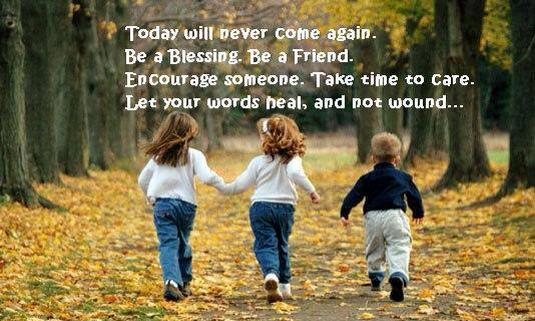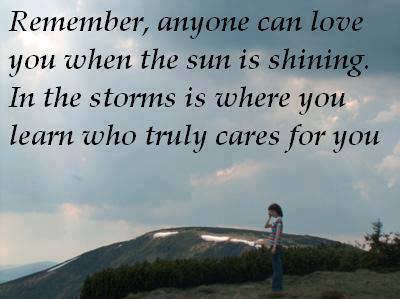Remember: I chose you. Of all the people I could call in this moment, I trusted you.
My mother hit the nail on the head when she said that I didn’t come with an instruction manual.
If I did, I’d request that it include at least one chapter on suicide — because none of us, including me, were prepared for how to deal with suicidal thoughts and actions. As it turns out, mental illness would drive me to the end of my rope on more than one occasion.
The truth is that no one prepares you for that phone call, the one when your loved one is on the other end of the line saying, “I just can’t do this anymore.”
No one prepares you for that moment when they hang up abruptly, just after you’ve made out the faint sounds of them rummaging through — is that the medicine cabinet? Are they going to overdose? Have they already taken something? Oh my God.
I’ve been the person who both got the call and made the call — suicidee and suicidal, if you will — and I know what it feels like to be both on the ledge and the one trying to talk someone down.
But if you’ve only ever been the one on the ground, you might not understand what it looks like from way up there. It’s difficult to understand and even more difficult to empathize with a person who is suicidal, having never been there before.
And while I can’t give you an instruction manual, I can tell you what it feels like to be there.
Here’s what I wish you knew:
1. Please don’t pretend to understand what it’s like if you don’t actually know.
I know that you’re just trying to connect with me, but listen, I can see through the bullshit from a mile away. I know when you can’t actually relate to what I’m going through.
Remember that one kid at summer camp who claimed to have extensive knowledge of French kissing, and then got to talking a little too much untileveryone knew that he was full of it?
…Yeah. If you haven’t been suicidal before or if you haven’t experienced depression like this, that’s OK. I don’t actually need you to understand. I just need you to be here with me right now. I called YOU, of all people, for a reason.
2. I don’t need you to fix this.
If I’m at rock bottom, the reality is that my situation is one that won’t be fixed in a single night. Crises like these aren’t about fixing things — it’s about being my support, helping me to hang in there when it seems like there’s nothing worth holding on for.
By all means, share resources and coping strategies with me if I ask for them. But if you enter into this conversation with the expectation that you can fix all of my problems, it’s just going to create a whole lot of stress for us both.
3. The fact that I told you what I’m feeling is a really huge deal.
Being suicidal is one of the most vulnerable positions a human being can be in. It’s also one of the most difficult things you can endure. It took a lot of courage to talk about what I’m going through. Honor that courage.
And remember: I chose you. Of all the people I could call in this moment, I trusted you. That means something.
Instead of ending my life, I reached out to you. You mattered enough to be the person that I picked up the phone for. You mattered enough to be the face that I looked for in my darkest hour.
The fact that I’m including you now means that I care very deeply about you. Please don’t forget that.
4. Take me seriously.
I wish I didn’t have to say this, but you need to take everything I’m saying very seriously. It may not feel like it, but it’s a matter of life or death.
5. Telling me that there’s hope when I feel hopeless isn’t always helpful.
DO tell me about concrete alternatives, resources, and options that I have in my position. But DON’T give me empty promises of how beautiful life is or other poetic ideas that you think will inspire me to keep on living.
If I could comprehend that kind of optimism right now, I probably wouldn’t be in this position.
6. My feeling this way isn’t your fault.
Please, please, please don’t blame yourself for how I’m feeling in this moment. Could’ve, should’ve, and would’ve scenarios will only make us both feel worse. Instead, focus on the here and now, and how to get us through this.
7. My pain is valid.
You may not understand my pain, but that doesn’t mean it isn’t valid. Don’t tell me that I don’t have a reason to be depressed or suicidal. Don’t tell me my life is too good to throw away. Don’t tell me that there are people out there with worse problems than mine.
I don’t deserve to be punished or made to feel guilty just because I’m having a difficult time in my life.
Validate my pain. Acknowledge my suffering. And know that, for me, it’s very real. Real enough to make me contemplate suicide.
8. I may not be ready for what you have to say (right now), but it could mean everything to me later on.
Talking to a suicidal person can sometimes feel like talking to a brick wall. The truth is, I’m not always ready to hear what you have to say. Your messages of support, love, and warmth may go right over my head. I’m in a dark place and I can’t always see the light from where I’m at.
But I’ll tell you what: I remember the people who talked me off the ledge years and years ago. I remember what they said to me to this day. And even though, in that moment, I couldn’t really grasp what they told me, it came back to me.
I remembered it in therapy. I remembered it the next time I was hurting. I remembered it in recovery. And those words that, at first, meant nothing to me eventually came to mean everything.
What you’re saying to me is never in vain. Because while it may not resonate at the time, it could be the affirmation that I cling to weeks, months, years down the line. Sometimes it takes a while before the message really sinks in.
Give me time. I’ll thank you later.
—-
Have a suicidal loved one and not sure what to do? Read this guide from the National Suicide Prevention Lifeline or, if you need immediate assistance, give them a call at 1-800-273-TALK (8255).














